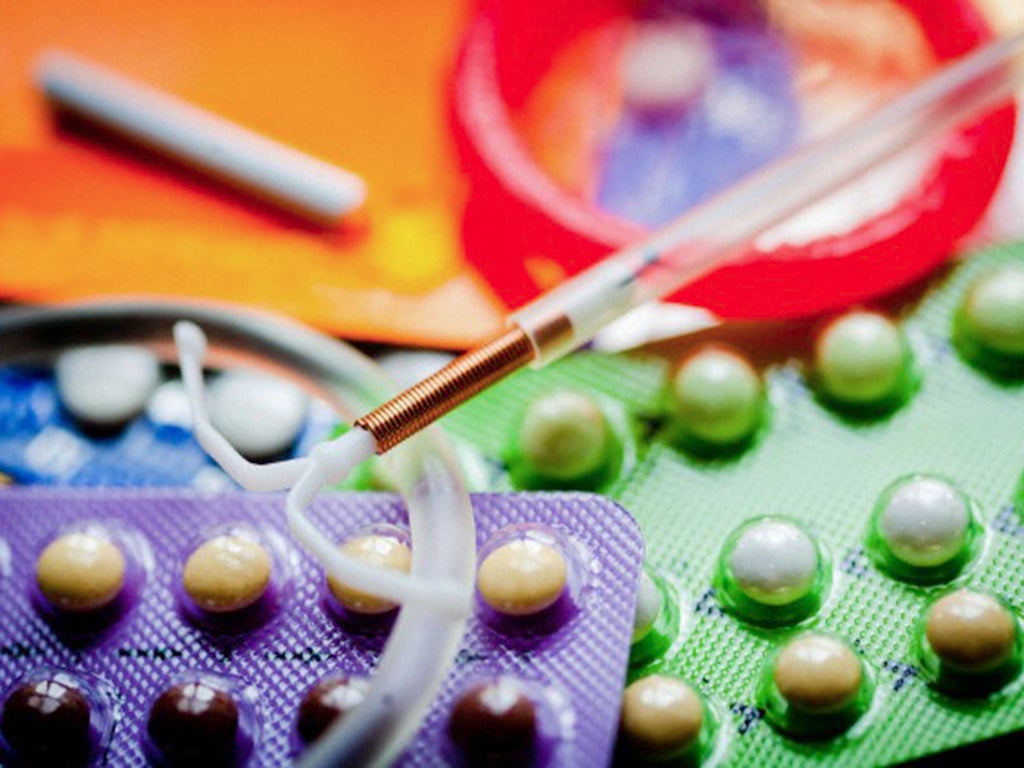Pandemic triggered 1.4 million unintended pregnancies due to almost 12 million women losing access to contraception, UN study finds
‘Pregnancies don’t stop for pandemics, or any crisis,’ says United Nations leader

Your support helps us to tell the story
From reproductive rights to climate change to Big Tech, The Independent is on the ground when the story is developing. Whether it's investigating the financials of Elon Musk's pro-Trump PAC or producing our latest documentary, 'The A Word', which shines a light on the American women fighting for reproductive rights, we know how important it is to parse out the facts from the messaging.
At such a critical moment in US history, we need reporters on the ground. Your donation allows us to keep sending journalists to speak to both sides of the story.
The Independent is trusted by Americans across the entire political spectrum. And unlike many other quality news outlets, we choose not to lock Americans out of our reporting and analysis with paywalls. We believe quality journalism should be available to everyone, paid for by those who can afford it.
Your support makes all the difference.Some 1.4 million unintended pregnancies occurred during the coronavirus pandemic after the crisis led to almost 12 million women losing access to contraception, a new study has found.
The report, produced by the United Nations’ sexual and reproductive health agency, said women across 112 nations had been affected.
Researchers at the United Nations Population Fund (UNFPA) said the pandemic had been the “fastest-moving global public health crisis” in 100 years, placing an unprecedented burden on worldwide health structures – and leading to resources being diverted away from sexual health services.
This has been compounded by women refraining from accessing reproductive health services due to lockdown or anxiety around contracting Covid, the study added.
Dr Natalia Kanem, executive director of the UNFPA, said: “Pregnancies don’t stop for pandemics, or any crisis. We must ensure that women and girls have uninterrupted access to life-saving contraceptives and maternal health medicines.
“The devastating impact that Covid-19 has had on the lives of millions of women and girls in the past year underscores just how vital it is to ensure the continuity of reproductive health services.
“Despite major disruptions in access to family planning, the international community pulled together to mitigate the worst-case scenario.
“From governments to manufacturers to healthcare providers, the world’s supply chains for modern contraceptives have shown their resilience, and largely bounced back from the stock-outs we saw in the earlier days of the pandemic.”
In the UK alone, fresh data revealed a 53-per-cent fall in emergency contraceptive items provided by sexual and reproductive healthcare services from April to September last year in comparison to the same period in 2019.
The new figures, released by the Faculty of Sexual and Reproductive Healthcare (FSRH), showed a 37-per-cent fall in contraception-related contacts with sexual and reproductive healthcare services during the same period. This amounts to a nosedive of 249,927 contacts.
Dr Asha Kasliwal, president of the FSRH, said: “The Covid-19 pandemic has changed the way women can access contraception. As our own members’ survey has also shown, despite tireless work by doctors, nurses and other healthcare professionals to guarantee minimum levels of provision, the Covid-19 pandemic has hit community contraceptive services hard.
“Waiting lists for long-acting reversible contraceptives, the most effective methods of contraception, have grown longer and longer.
“The pandemic has highlighted that contraceptive services need sustainable investment. The redeployment of staff from already understaffed sexual and reproductive healthcare clinics has resulted in service closures, and clinicians are concerned that vulnerable patients are no longer able to access the care that they need.”
The Independent recently reported that thousands of women in Britain had had abortions after falling pregnant while having difficulties accessing contraception during the pandemic.
Sexual health clinics have been forced to shut or run reduced services while staff are transferred to work with Covid-19 patients or have to self-isolate – with the far-reaching disruption leaving many women blocked from getting hold of their usual methods of contraception.
Many women are struggling to get the most effective long-acting contraceptive choices of a coil or an implant due to these requiring face-to-face appointments which have largely been suspended, with consultations are carried out remotely via phone or video call to contain the virus.


Join our commenting forum
Join thought-provoking conversations, follow other Independent readers and see their replies
Comments